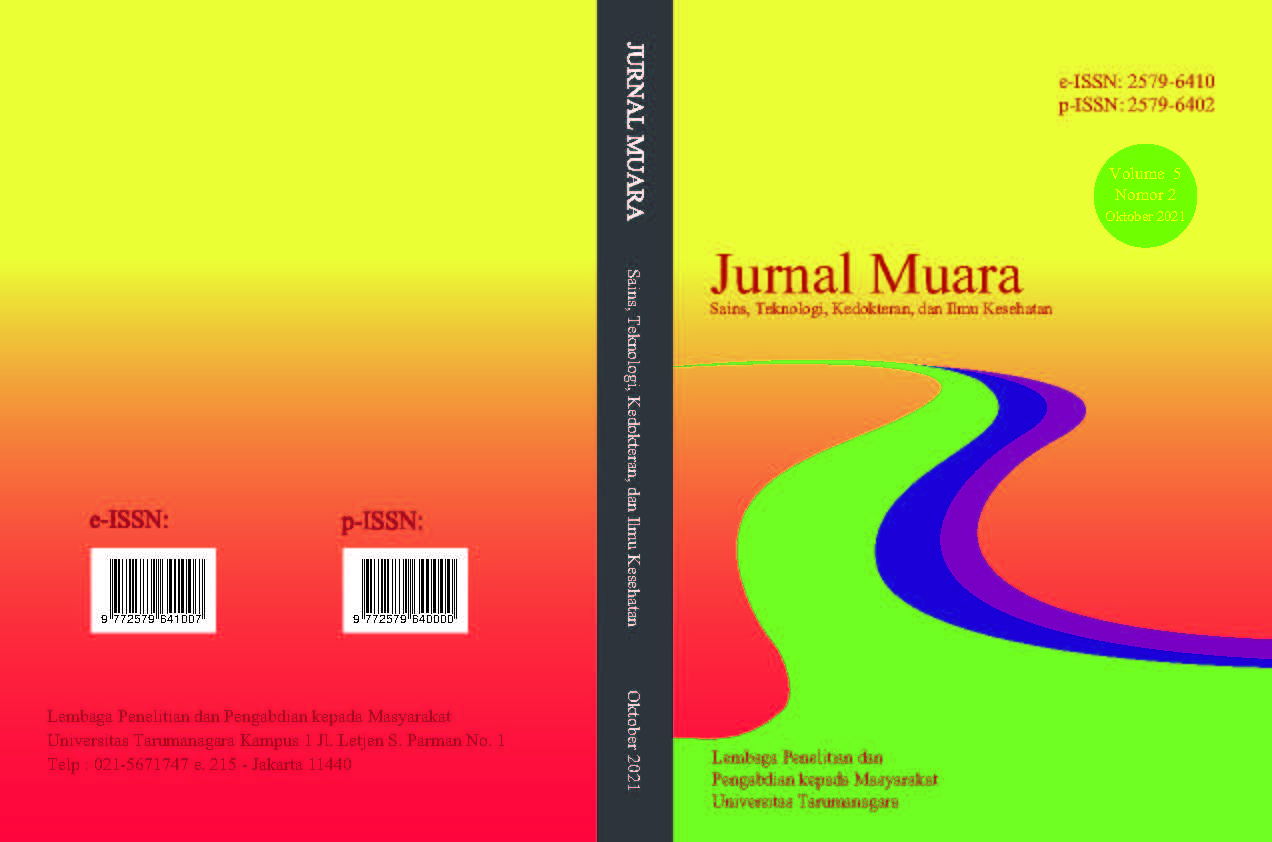DESAIN APLIKASI FINANCIAL TECHNOLOGY (FINTECH) PADA PEREMPUAN KORBAN PHK TERDAMPAK COVID – 19 DENGAN SISTEM REDISTRIBUSI PENGHASILAN BERBASIS LAYANAN FILANTROPI
Main Article Content
Abstract
The impact of the global economic crisis due to the Corona Virus Pandemic or Covid-19 is felt by the entire world population, including the people of Indonesia. Many Bankrupt Industries have resulted in an increase in layoffs, especially for women, considering the very large role of women and being the supporter of the family economy; then the role of this woman needs to be strengthened again, so that the survival of their family will be guaranteed. In addition, the dynamics of the field require creative solutions to increase financial inclusion. One of them is through the use of the philanthropic service sector. In the difficult economic conditions during the corona virus (Covid-19) pandemic in Indonesia, this did not reduce public philanthropy, on the contrary, it tends to continue to increase. A philanthropic business model that will be built by bringing together donors and female workers affected by Covid-19. They can interact directly without the need for an intermediary. The research method used is the Waterfall method which includes the analysis phase, the design phase, the implementation phase, the testing phase, including blackbox, whitebox and usability testing with SUS (System Usability Scale). The results of the System Usability Scale (SUS) test have an average SUS score of 86.5, which means the system is feasible to use. It is hoped that with this e-sharing platform, it can facilitate people who have a fixed income or who do not have the risk of losing their jobs in the midst of this pandemic to distribute a small portion of their wealth in an egalitarian format to those who are disadvantaged by the Covid-19 restrictions.
Keywords: Fintech; filantropi; platform; PHK
Abstrak
Dampak krisis ekonomi global akibat Pandemik Virus Corona atau Covid-19 sangat dirasakan oleh seluruh penduduk dunia, termasuk masyarakat Indonesia. Banyak Industri Bangkrut yang mengakibatkan kenaikan PHK meningkat khususnya perempuan, mengingat peran wanita sangat besar dan menjadi penopang ekonomi keluarga; maka peran wanita ini perlu diperkuat lagi, sehingga kelangsungan hidup keluarga mereka akan terjamin. Disamping itu, dinamika lapangan membutuhkan solusi kreatif untuk meningkatkan inklusi keuangan. Salah satunya lewat pemanfaatan sektor layanan filantropi. Dalam kondisi ekonomi yang sulit pada masa pandemi virus corona (Covid-19) di Indonesia tidak membuat filantropi masyarakat menurun, sebaliknya justru cenderung terus meningkat. Model bisnis filantropi yang akan dibangun dengan mempertemukan antara para donatur dan pekerja wanita yang terdampak covid-19. Mereka bisa langsung berinteraksi tanpa perlu kehadiran intermediary. Metode penelitian yang digunakan adalah menggunakan metode Waterfall yang meliputi tahap analisis (analysis), tahap perancangan (design), tahap implementasi (implementation), tahap pengujian (testing) antara lain blackbox, whitebox dan Usability dengan pengujian SUS (System Usability Scale). Hasil pengujian System Usability Scale (SUS) rata-rata skor SUS sebesar 86,5 yang berarti sistem layak digunakan. Diharapkan dengan adanya platform e-sharing ini, dapat memfasilitasi masyarakat yang berpendapatan tetap atau yang tidak memiliki resiko kehilangan pekerjaan di tengah pandemi ini untuk mendistribusikan sebagian kecil kekayaannya dalam format egaliter ke mereka yang dirugikan restriksi Covid-19.
Article Details
This work is licensed under a Jurnal Muara Sains, Teknologi, Kedokteran dan Ilmu Kesehatan Creative Commons Attribution-ShareAlike 4.0 International License.
Authors transfer copyright or assign exclusive rights to the publisher (including commercial rights)
References
Bangor, A. et al. (2008) “An Empirical Evaluation of the System Usability Scale Usability Scale,” 7318. doi: 10.1080/10447310802205776.
Brooke, J. (2020). SUS : A Retrospective. January 2013.
Burhanuddin, C. I., & Abdi, M. N. (2019). Minat Masyarakat dalam Penggunaan Fintech. Riset & Jurnal Akuntansi, 3(1), 1–27.
Dewi, M. M., Magdalena, F., Ariska, N. P. D., Setiyawati, N., & Rumboirusi, W. C. B. (2020). Dampak Pandemi Covid-19 terhadap Tenaga Kerja Formal di Indonesia The Impact of Covid-19 Pandemic on Formal Labour in Indonesia. Populasi, 28(2), 32–53.
H.N, I. A., Nugroho, P. I., & Ferdiana, R. (2015). Pengujian Usability Website Menggunakan System Usability Scale. JURNAL IPTEKKOM : Jurnal Ilmu Pengetahuan & Teknologi Informasi, 17(1), 31. https://doi.org/10.33164/iptekkom.17.1.2015.31-38
Jusuf, C. (2007). Filantropi Modern Untuk. Filantropi Modern Untuk Pembangunan Sosial, 74–84.
Marthasari, G. I., & Hayatin, N. (2017). Analisis Usability Terhadap Sistem Lective Gegulang Berbasis USE Qestionnaire. Jurnal Seminar Nasional Teknologi Dan Rekayasa (SENTRA), 1–8.
http://research-report.umm.ac.id/index.php/sentra/article/view/1458
Nizar, M. A. (2017). Financial Technology ( Fintech ): It ’ s Concept and Implementation in Indonesia. Munich Personal RePEc Archive, V(98486), 15.
Rusidi. (2011). Evaluasi Website EGoverment Instansi Pemerintah Daerah Kabupaten Ogan Komering Ulu Dan Ogan Komering Ulu Timur. http://Blog.Binadarma.ac.id/Akbar/ 2010/12
Sari, E. K., & Fikri Zufar, B. N. (2021). Perempuan Pencari Nafkah Selama Pandemi Covid-19. Al-Mada: Jurnal Agama, Sosial, Dan Budaya, 4(1), 13–29. https://doi.org/10.31538/almada.v4i1.1106
Steve, K. (1985). Emergency radiology in childhood. In Don’t Make Me Think, Revisited A Common Sense Approach to Web Usability (Vol. 3, Issue 3). New Riders. https://doi.org/10.1097/01241398-198601000-00078



